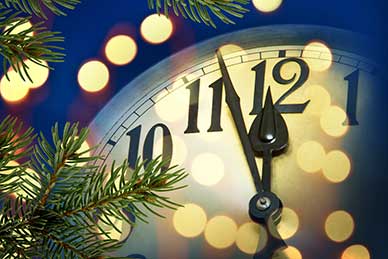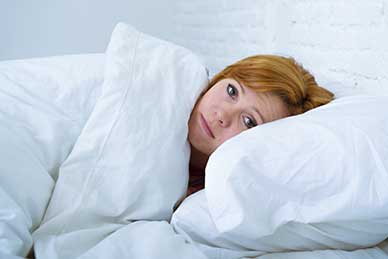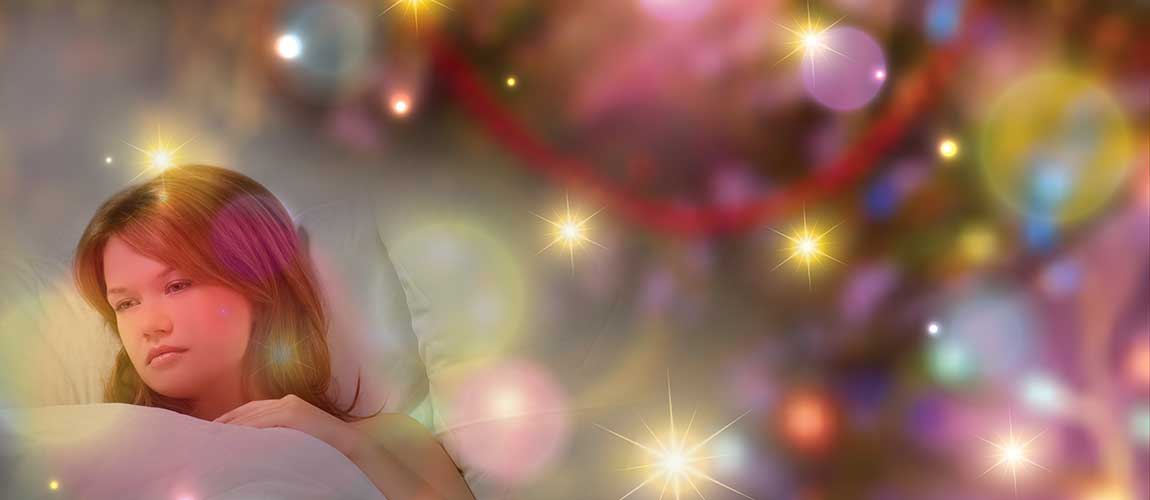Tis the season for holiday decorations including stockings, sleighs and lots of lights. If your neighborhood is like most in the Western world, there is a good chance that your own home, as well as those around you, is trimmed with holiday or Christmas lights. These twinkling lights may have a positive effect on your holiday spirit, but a very negative effect on your physical health.
Light Pollution and Sleep
Do you have trouble sleeping when lights are on? If so, you are not alone. We all may feel a bit better in well-lit areas but science suggests that just the opposite should be true. When your neighborhood is bathed in light, your eyes sense this and send messages to the suprachiasmatic nucleus of your brain. From here, hormones such as melatonin and cortisol are released to let your body know what time of day it is and coordinate important activities such as cell repair. The problem is that so many people are trying to sleep in the winter even as Christmas lights are blazing in our neighborhoods. As a result, they are suffering from a disturbed circadian rhythm.
 The light pollution from these lights can cause problems that we do not even realize. We may feel tired but be unable to sleep simply because we are bathed in light. Studies have linked Christmas lights to insomnia in children, but there is a good chance that we all suffer the biological consequences of sleeping in a world bathed in light, even if we don’t even realize it. Our brains perceive this light pollution as a legitimate reason to stay awake even while we are desperate for sleep and release hormones that promote wakefulness and productivity.
The light pollution from these lights can cause problems that we do not even realize. We may feel tired but be unable to sleep simply because we are bathed in light. Studies have linked Christmas lights to insomnia in children, but there is a good chance that we all suffer the biological consequences of sleeping in a world bathed in light, even if we don’t even realize it. Our brains perceive this light pollution as a legitimate reason to stay awake even while we are desperate for sleep and release hormones that promote wakefulness and productivity.
Christmas Lights: Bad for Your Health?
While a disrupted sleep-wake cycle can lead to health problems, this is not the only way that Christmas lights can harm your health. Three percent of people with epilepsy have a type of epilepsy called photosensitive epilepsy, in which bright or flashing lights can induce seizures. For these people, the holiday season can be a real challenge requiring stronger prescription medication or even abstaining from holiday events. Light perceived by the eyes can have a larger effect on the brain than most people realize.
Melatonin Deficiency: More Than Sleep
The melatonin deficiency caused by constant light can have a variety of health effects. Difficulty sleeping is the most obvious and noticeable effect but you also may see more nonspecific issues. Immediate effects include hypertension, decreased memory and depression. If you are chronically deprived of melatonin over a long period, you may have a higher risk of serious life-threatening diseases such as type 2 diabetes and heart disease. This is especially true if you use white or blue holiday lights, which have been proven to depress melatonin production more than other colors. Even worse, children and the elderly, two groups that need their sleep badly, are more likely to have their sleep disrupted by low melatonin production.
Not only are holiday lights bad for your health, but they are bad for the environment as well. The electricity used to keep Christmas lights aglow is often made from fossil fuels. In addition, the light pollution from these lights can have negative effects on the small animals and wildlife that live in your neighborhood. This is a choice that enlarges your carbon footprint measurably while directly affecting the creatures around you.
Dealing With the Season of Lights
 The holiday season may be too well-lit, but this does not mean you have to go without sleep until Santa has come and gone. Experts suggest that you turn off Christmas lights as well as other lights a half-hour before you go to bed to allow your body to produce enough melatonin to support good sleep. If your neighbors and community have lights near your home that may interfere with sleep, consider using blackout curtains or other means of blocking light. Last, if you still struggle to get the sleep you need, consider taking a melatonin supplement before bed.
The holiday season may be too well-lit, but this does not mean you have to go without sleep until Santa has come and gone. Experts suggest that you turn off Christmas lights as well as other lights a half-hour before you go to bed to allow your body to produce enough melatonin to support good sleep. If your neighbors and community have lights near your home that may interfere with sleep, consider using blackout curtains or other means of blocking light. Last, if you still struggle to get the sleep you need, consider taking a melatonin supplement before bed.
Holiday decorations are a great way to brighten up the cold winter nights. While these can cause negative health effects, there are ways to protect yourself. It’s important to take care of your health so you can enjoy many holiday seasons to come with your family and friends.

